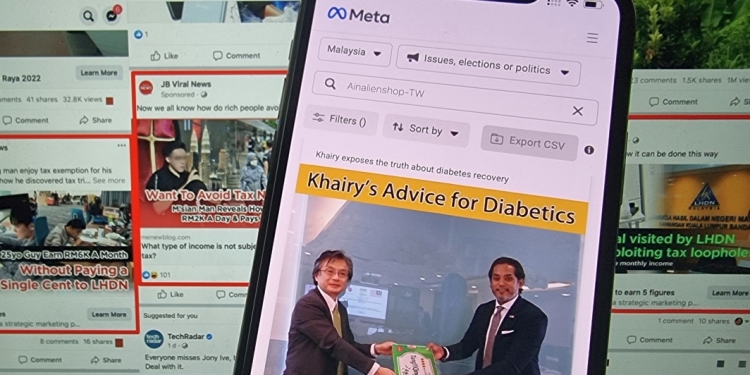The Ministry of Health has issued a statement refuting claims that it endorsed a diabetes recovery product that’s advertised on Facebook. The ad came from a Facebook page with 378 likes and it showed a photo of Health Minister Khairy Jamaluddin with the text “Khairy’s Advice for Diabetics – Blood sugar returns to normal”.
KKM ingin menegaskan bahawa KKM tidak pernah memperakukan mana-mana produk atau makanan yang boleh menggantikan ubatan termasuk insulin untuk merawat Diabetes seperti didakwa oleh Facebook page “Ainalienshop-TW”
— KKMalaysia🇲🇾😷 (@KKMPutrajaya) May 6, 2022
Gambar yang digunakan merupakan gambar yang telah diubahsuai. pic.twitter.com/4aFwC9zGBL
The Ministry of Health warns all manufacturers and product owners to be responsible and not to cause confusion among the public. Despite the report from the Ministry of Health, the ad is still active and it has been running since 2nd May 2022. At the time of writing, it seems that Facebook has not taken any steps to stop the ad and as a result, Malaysian consumers are still at risk of being misled by false advertising on their platform.
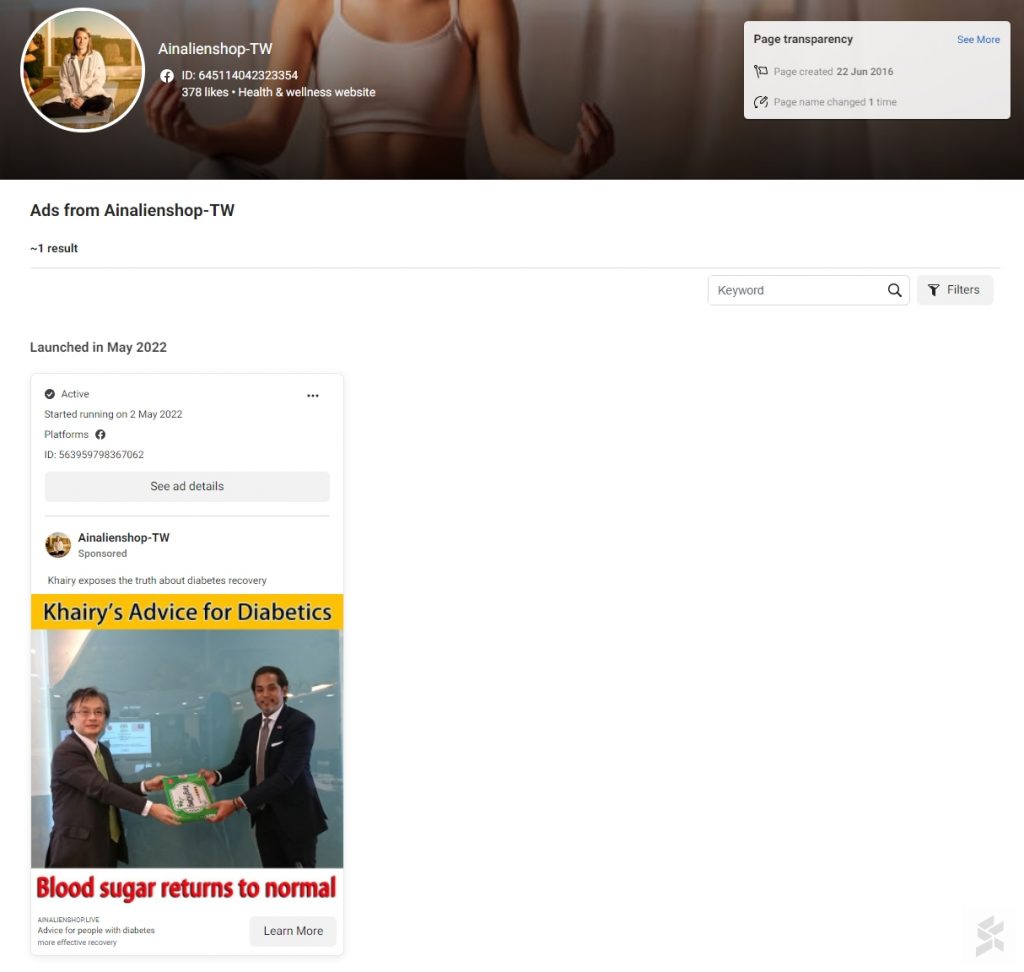
Facebook has been allowing scammers to run fake ads targetting Malaysians
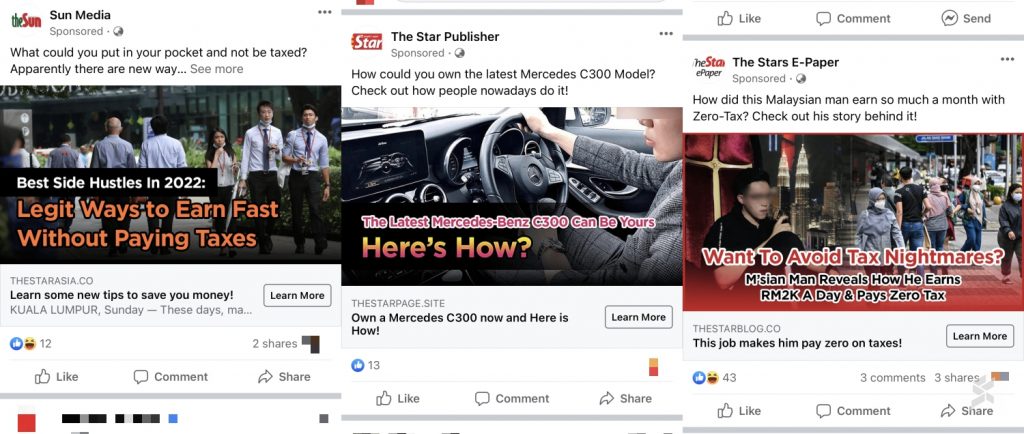
Despite having an elaborate advertising policy that requires all ads to be reviewed, Facebook continues to approve fake and scam ads targetting innocent Malaysians. We’ve seen Facebook allowing ads promoting fake KFC vouchers, ads pretending to be mainstream news websites, and ads promoting fake products. Although Facebook has provided options for users to report fake and misleading ads, it takes almost forever for them to respond.
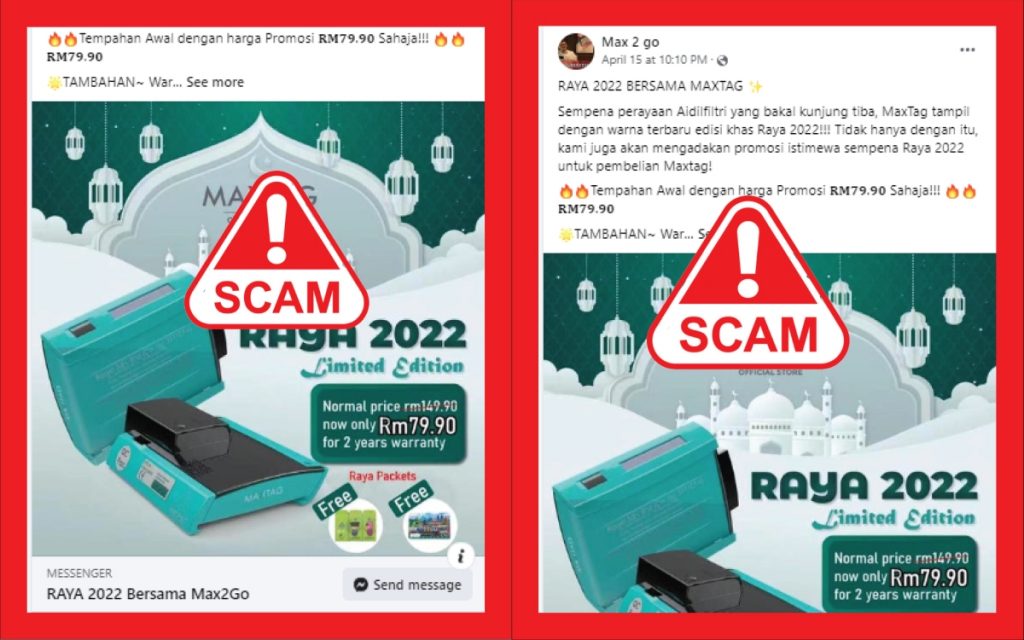
Recently, I’ve reported a page that’s promoting a fake “MaxTag” device. More than 48 hours later, I’ve not received any reply and the page along with the fake ad is still up and running. Even MaxTag themselves seem hopeless in their attempt to bring down these fake Facebook pages and they are even offering victims special price for their genuine products.
Enough is enough. The government should take action now.
Deputy Home Affairs Minister Datuk Jonathan Yasin recently revealed that Malaysians lost over RM1.61 billion to online fraud from 2019 to 2021. Out of 51,631 fraud cases, online purchases top the list with 18,857 cases. With the rise of visible fake ads on the Facebook platform, it is clear that the authorities should hold the tech giants like Facebook liable for approving the ads in the first place.
In March 2022, the Australian Competition and Consumer Commission (ACCC) sued Meta for allowing scam ads on its platform. It alleged that Meta has engaged in false, misleading or deceptive conduct by publishing scam advertisements featuring prominent Australian public figures. The ACCC said their conduct was in breach of the Australian Consumer Law (ACL) or the Australian Securities and Investments Commission Act (ASIC Act). It added that Meta aided and abetted or was knowingly concerned in false or misleading conduct and representations by the advertisers.
According to their official statement, the ads had promoted investment in cryptocurrency or money-making schemes and were likely to mislead Facebook users into believing that the ads were associated with well-known people. The schemes were in fact scams and the people featured in the ads had never approved or endorsed them.
ACCC Chair Rod Sims said Meta is responsible for ads that it publishes on its platform and should have been doing more to detect and then remove false or misleading ads on Facebook, to prevent consumers from falling victim to ruthless scammers.
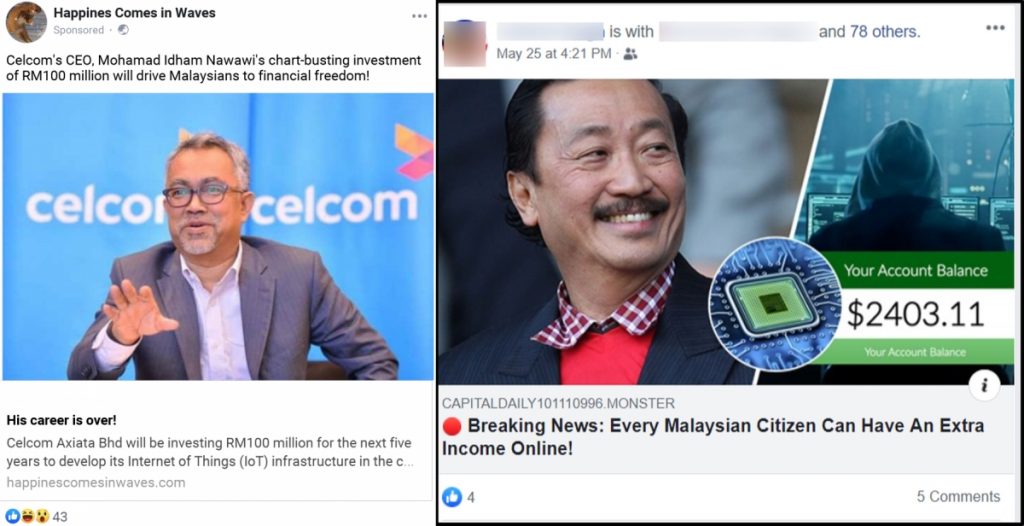
He added “Apart from resulting in untold losses to consumers, these ads also damage the reputation of the public figures falsely associated with the ads. Meta failed to take sufficient steps to stop fake ads featuring public figures, even after those public figures reported to Meta that their name and image were being featured in celebrity endorsement cryptocurrency scam ads.”
What should Facebook do to prevent scam ads on its platform
The government should require Facebook and other tech giants to set up a dedicated advertising review and monitoring team in Malaysia to vet ads targetting Malaysian users. Having a local team will definitely help to weed out potential scam ads as they have a better understanding of the local context and can identify potential misuse of local celebrities or public figures.
In most cases, most of these scam ads are created from newly created Facebook pages or pages with very few likes. The moment the page gets pulled down, the syndicates can simply create a new page and run the same fake ads again. To curb such activities, authorities can set a rule for Facebook and other online ad platforms to only allow ads from verified advertisers. A Facebook page must have a required minimum likes or have a verified badge before it can create a new ad campaign. Alternatively, they could require all businesses to verify their Facebook page through a process similar to setting up a verified eWallet account.
To ensure Facebook acts immediately on user reports, the government should set a mandatory turnaround time to take down reported scam ads. If Facebook or any online platforms fail to act on reported ads within a stipulated timeframe, they can be slapped with heavy penalties. The heavy fines should be proportionate to how much the platform makes from advertisers.
If the Malaysian government can slap fines up to RM100,000 for individuals found guilty of spreading fake news under the Emergency Ordinance 2021, surely they can do the same to platforms such as Facebook. Unlike individuals, Facebook actually makes money when scammers use its platform to run ads with the intention to scam Malaysians. Accepting money and running ads from scammers should be seen as aiding and abetting criminal activity.
Related reading
- Facebook still allows scammers to run fake ads targetting Malaysians
- Crypto scammers stole over USD500,000 using Google Ads and phishing websites
- PSA: Beware of fake KFC Malaysia Facebook pages offering free vouchers
- PSA: RM79.90 for Raya 2022 Limited Edition MaxTag is a scam
- Steve Wozniak is suing YouTube due to bitcoin giveaway scams

